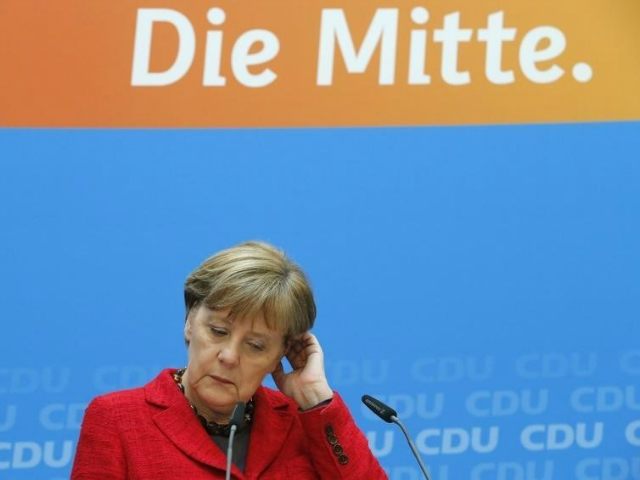BERLIN (Reuters) – German Chancellor Angela Merkel’s Christian Democrats agreed on Wednesday to hold coalition talks with the Greens in one western state, a party spokesman said, potentially fuelling a debate on whether the two could form a national government next year.
An alliance between the two parties in the wealthy state of Baden-Wuerttemberg could be seen as a template for a national government after an election in 2017.
The environmentalist Greens became the strongest party in a state for the first time in their history this month in an election in Baden-Wuerttemberg, scoring 30.3 percent. Voters unhappy with Merkel’s liberal policy on immigrants abandoned her Christian Democrats (CDU) in droves, leaving them with 27 percent there.
The state of Hesse currently has a government made up of the CDU and Greens, and it is easier for parties to form federal coalition governments if there is already a model for them working together at the state level.
If the two formed a coalition in Baden-Wuerttemberg, however, the CDU would be the junior partner – a letdown for Merkel’s party given that Baden-Wuerttemberg was a CDU stronghold for almost six decades before a Green-led coalition with the Social Democrats (SPD) took power in 2011 after Japan’s Fukushima nuclear disaster.
The Greens and the CDU plan to start negotiations next week.
A Forsa poll on Wednesday showed the conservative bloc – made up of the CDU and their Bavarian CSU allies – on 36 percent at the national level while the Greens were on 13 percent. That would be enough for them to form a government together, as the poll showed 6 percent of the vote going to parties that would not reach the threshold needed to enter parliament.
Germany is currently ruled by the conservatives and the SPD on the national level, but such a ‘grand coalition’ is not generally their preferred option. The conservatives and the Greens have not been keen to work together in the past, either. The SPD suffered losses in recent state elections.
A strong showing by the right-wing, anti-immigrant Alternative for Germany (AfD), which took up to a quarter of votes in regional elections on March 13, is likely to make it harder for the mainstream parties to form coalitions after next year’s election. None of the established parties wants to form a coalition with the AfD.

COMMENTS
Please let us know if you're having issues with commenting.